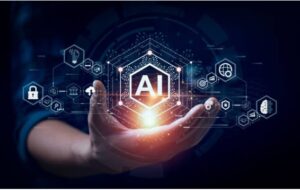20 Technology Skills a Teacher Should Have Topic Sentence
In today’s digital age, technology has revolutionized the education field, transforming how Teachers teach and students learn. To be effective in the modern classroom, Teachers must possess diverse technology skills. These
skills enhance teaching practices, engage students, foster creativity, and promote critical thinking. This article will explore 20 essential technology skills that every Teacher should have to thrive in the 21st-century classroom.
Proficiency in Educational Software
Teachers must proficiently use various educational software, including Learning Management Systems (LMS), virtual learning platforms, and educational apps. These tools help manage coursework, monitor student progress, and provide interactive learning experiences.

Digital Collaboration
Collaboration is a vital skill for Teachers to foster among their students. Utilizing digital collaboration tools, such as Google Workspace or Microsoft Teams, allows Teachers to facilitate group projects, communication, and seamless information sharing.
Online Content Curation
Teachers should be adept at curating online content from reputable sources to enrich their lessons. This includes finding videos, articles, and interactive resources that supplement the curriculum and engage students meaningfully.
Data Analysis and Assessment Tools
Analyzing student data and tracking progress is crucial for personalized learning. Teachers must be skilled in using data analysis and assessment tools to identify students’ strengths and weaknesses, allowing them to tailor
instructional strategies accordingly.
Digital Storytelling
Storytelling has always been a powerful teaching tool, and digital storytelling takes it to the next level. Teachers can use multimedia tools like Adobe Spark or Microsoft PowerPoint to create engaging and interactive narratives.
Virtual Reality and Augmented Reality
VR and AR technologies can transport students to different places and eras, making learning more immersive and memorable. Teachers should embrace these technologies to offer captivating experiences.
Coding and Creative Thinking
Coding skills are becoming increasingly valuable in the modern world. Teachers can introduce coding concepts and computational thinking to students using platforms like Scratch or Code.org, promoting problem-solving and creativity.
Cybersecurity Awareness
As technology use grows, so do the risks associated with it. Teachers should know cybersecurity best practices to protect students and maintain data integrity.
Online Safety Education
Promoting online safety is essential in the digital age. Teachers should educate students about responsible internet use, cyberbullying prevention, and privacy protection.
Video Creation and Editing
Creating and editing videos can enhance lesson delivery and student understanding. Teachers should be comfortable with video creation tools like iMovie or Adobe Premiere Pro.
Gamification in Education
Gamification elements can make learning more enjoyable and motivating for students. Teachers should integrate game-based learning strategies into their lessons to increase student engagement.
Social Media Integration
Social media platforms can be leveraged for educational purposes. Teachers should know how to use social media to communicate with students, parents, and the community while promoting digital citizenship.
Mobile Learning
With the prevalence of smartphones and tablets, Teachers should embrace mobile learning strategies that allow students to access educational content on their devices.
Online Classroom Management
Managing an online classroom requires different skills than traditional teaching. Teachers should know how to create and maintain a positive virtual learning environment.
Blended Learning Techniques
Blending traditional teaching with online components can lead to more effective learning experiences. Teachers should employ blended learning techniques that combine face-to-face and online instruction.
Podcasting
Podcasts are an engaging medium for delivering content. Teachers can create educational podcasts to supplement their lessons and encourage students to create them.
Adaptive Learning Technologies
Adaptive learning technologies personalize the learning experience for each student. Teachers should explore adaptive platforms to cater to individual learning needs.
Cloud Computing and Storage
Cloud-based tools enable easy access to educational resources and collaboration. Teachers should be familiar with cloud computing and storage solutions like Google Drive and Microsoft OneDrive.
Digital Citizenship Education
Teachers play a crucial role in teaching students about responsible digital citizenship, including respecting copyright, citing sources, and promoting online civility.
Lifelong Learning
Lastly, Teachers should cultivate a mindset of lifelong learning. Keeping up with the ever-evolving technology landscape allows them to stay innovative and better serve their students.
Closing statement
As technology continues to shape the education landscape, Teachers must adapt and acquire essential technology skills. By mastering these 20 skills, Teachers can create dynamic, engaging, and effective learning environments that prepare students for success in the digital era. Embracing technology enhances teaching
practices and equips students with the digital literacy and problem-solving abilities necessary to thrive in the 21st century.










